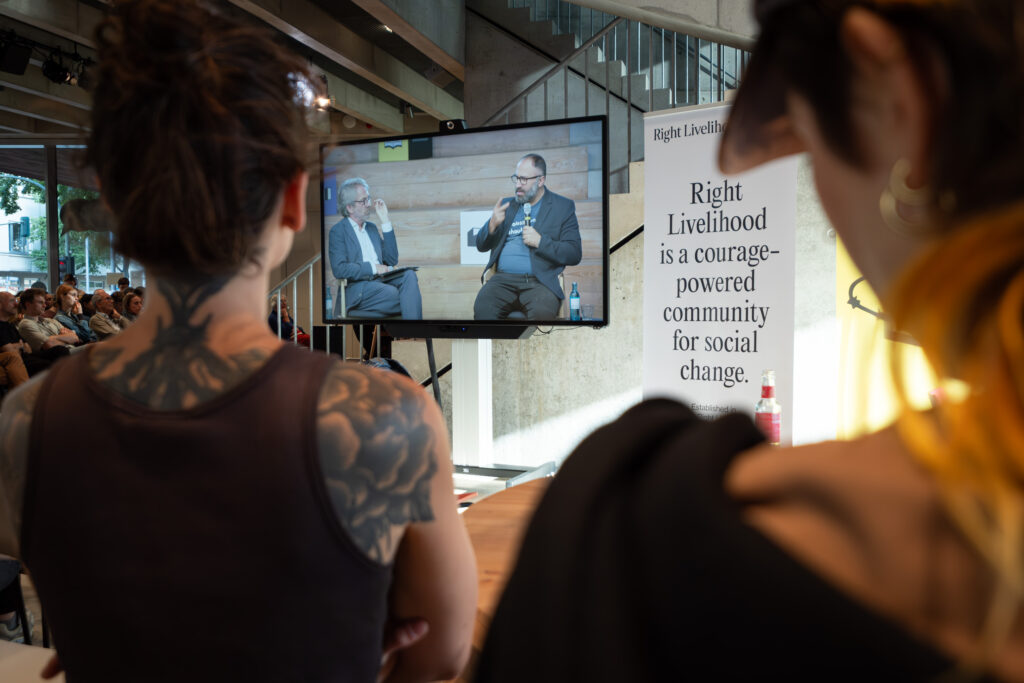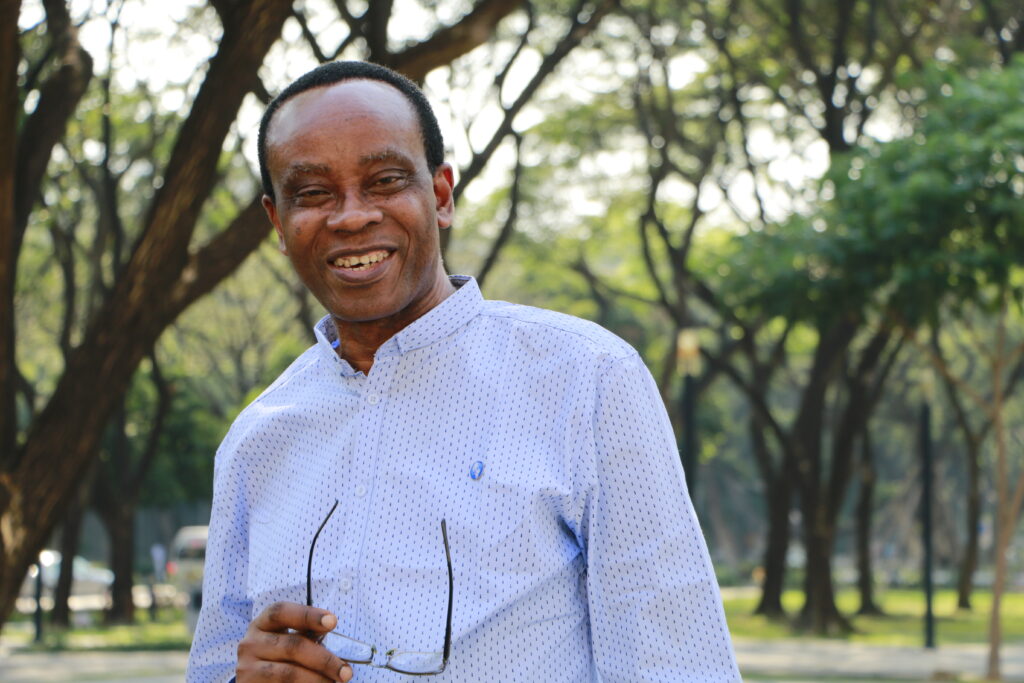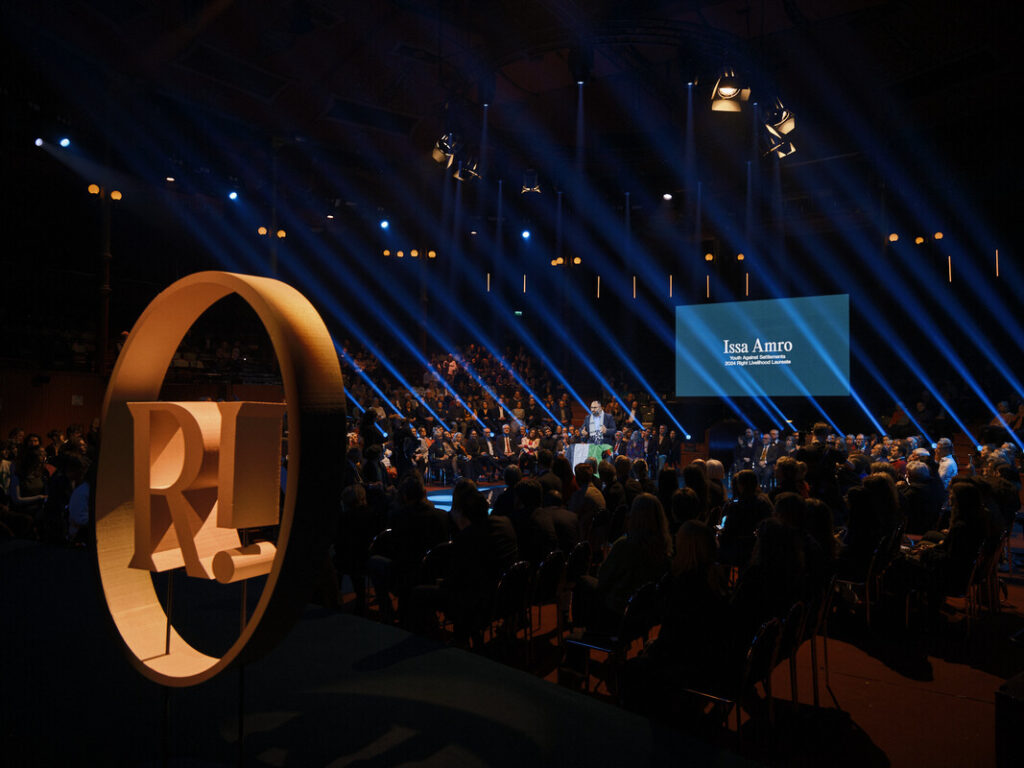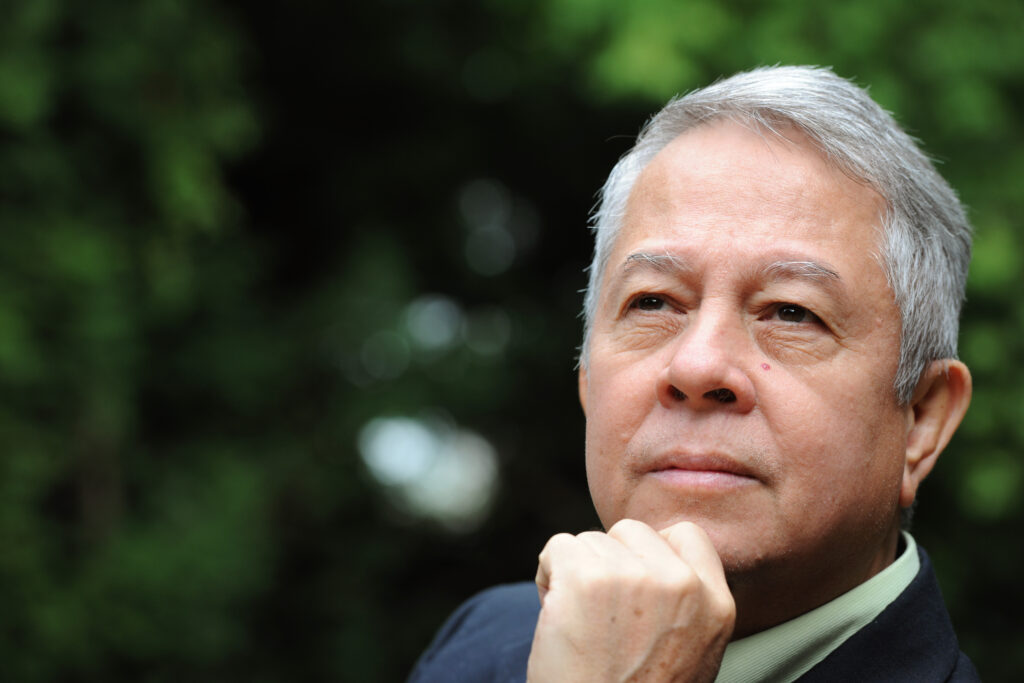On 19 June, Publix Berlin was packed to the rafters as 2024 Right Livelihood Laureate Issa Amro took the stage for a live conversation with Deutschlandradio’s chief correspondent Stephan Detjen. Co-organised by Right Livelihood and Amnesty International Germany, the event drew hundreds eager to hear from one of Palestine’s most persistent nonviolent voices.
Amro, a human rights defender from the occupied West Bank city of Hebron, has spent over two decades documenting abuses and resisting Israel’s apartheid system through peaceful means. From grassroots organising and digital mobilisation to court battles and student-led protests, his work has challenged both the Israeli occupation and internal Palestinian repression.
Wearing a dark blazer over a t-shirt that read “Palestinians should be free,” Amro opened by describing Hebron as “the microcosm of the Israeli occupation and apartheid.” The city is surrounded by over 100 Israeli-imposed movement barriers—part of more than 900 across the West Bank. For Amro, simply moving around his hometown means navigating a constant maze of checkpoints. He is barred from travelling to Jerusalem and flagged in Israeli intelligence systems, which increasingly use artificial intelligence and predictive profiling to monitor and restrict Palestinian movement. Amro raised serious ethical concerns about how AI and surveillance are being used “as a tool to force people from their homes,” calling on academics and researchers to study Hebron as “the city of surveillance and artificial intelligence.”
Travelling abroad is a major undertaking. Denied access to Tel Aviv’s airport, Amro must first exit through Jordan using an authorised travel document. He spoke candidly about the deep anxiety he feels every time he leaves Hebron—whether now in Berlin or last December in Stockholm to receive the Right Livelihood Award—knowing settler attacks on his home continue in his absence, and that his family and guests are regularly harassed.
Over the course of nearly two hours, including an open Q&A with the audience, Amro wove together personal experience, community testimony, historical context and a clear-eyed account of his human rights work, including the founding of Youth Against Settlements. He shared how he initially tried to stay away from politics and focus on his studies. But when Israeli forces shut down his university, he was pushed into activism. Today, he holds an engineering degree and continues to lecture on nonviolent resistance at universities.
“The students come to me and say: ‘We like what you said. We want to join. Can you talk to my mother?’”
Throughout the evening, Amro rejected the “both sides” narrative and centred the daily reality of Palestinians living under occupation. “It’s not two sides,” he said. “It is occupation and the occupied people.” He emphasised that “the main generator of violence is the occupation and the oppression,” and that victims should not be judged by the same standards as their oppressors. Amro argued that any lasting solution must address the imbalance in power, dignity and access to rights:
“The gap and the imbalance between the Palestinians and the Israelis is too big to make peace. So, the solution must be in levelling up the Palestinians.” He urged Germany to play a role, asking, “Berlin has twinships with Israeli cities. Do they have one with any Palestinian city? No. So we want a partnership with a Palestinian city. This is levelling up Palestinians.”
Moderator Stephan Detjen didn’t shy away from the political sensitivity surrounding the topic in Germany. He openly addressed the use of the term “apartheid” to describe Israeli policies in the occupied territories—acknowledging how fraught that language remains in German discourse. He invited Amro to elaborate on why he uses the term, and how framing the issue accurately is made harder when Palestinian voices are excluded from the conversation.
The audience at the full-house event rose to their feet in a standing ovation—a moment of recognition in a country where Palestinian testimony is often underrepresented in public discourse.

But the visit wasn’t just about the stage. While in Berlin, Amro met with members of the German Bundestag and the European Parliament, as well as senior diplomats at the German Foreign Office, urging them to support human rights and equality in Palestine. He also gave a one-on-one interview to Agence France-Presse (AFP), sharing his views on the current situation and the role of international actors.
Amro’s trip came amid rising violence and political instability in the region, including Israeli military operations in the West Bank and the ongoing humanitarian crisis in Gaza.
Yet his voice—direct, grounded in lived experience and unapologetically hopeful—cut through:
“See us as human beings and see us as a nation.”



























































































































































































































































































































